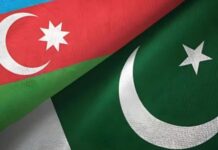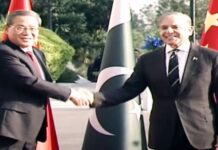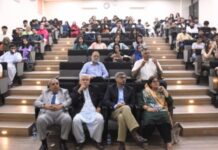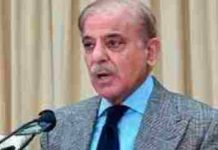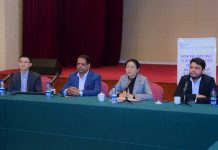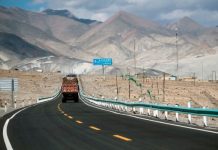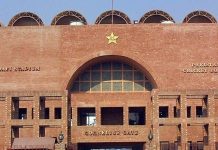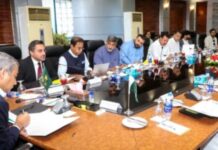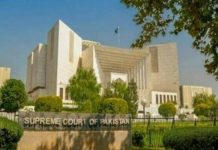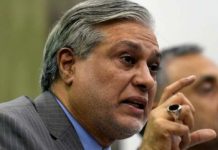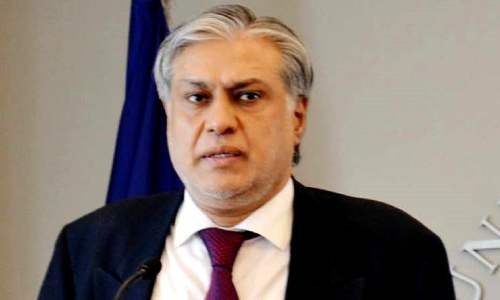ISLAMABAD, May 21 (NNI): Deputy Prime Minister and Foreign Minister Ishaq Dar says Pakistan’s geostrategic location offers an ideal trade and transit hub for the SCO region.
He was addressing SCO Council of Foreign Ministers meeting in Astana, Kazakhstan Tuesday.
The Foreign Minister highlighted the significance of China-Pakistan Economic Corridor for regional connectivity and economic integration.
Founded in 2001, the SCO is a major trans-regional organization spanning South and Central Asia, with China, Russia, Pakistan, India, Uzbekistan, Tajikistan, Kyrgyzstan and Kazakhstan as its permanent members.
The meeting comes at a time when Pakistan is making rigorous efforts to increase bilateral trade and investment with a number of countries and has aimed to enhance its role as a pivotal trade and transit hub connecting the Central Asian republics with the rest of the world, leveraging its strategic geographical position.
Addressing the SCO foreign ministers’ meeting, Foreign Minister Ishaq Dar explained Pakistan’s priorities as the current Chair of SCO Council of Heads of Government (CHG), including promoting connectivity, development of transport links, youth empowerment, poverty alleviation and enhanced practical cooperation among SCO member states.
“The Deputy Prime Minister said that Pakistan’s geostrategic location offers an ideal trade and transit hub for the SCO region,” the Foreign Ministry said in a statement.
He reiterated Pakistan’s firm adherence to the SCO Charter and explained its priorities as Chair of SCO Council of Heads of Government including promotion of connectivity, transport links, youth empowerment, poverty alleviation, and enhanced practical cooperation among SCO states.
CPEC, part of President Xi Jinping’s ambitious Belt and Road Initiative, is a $65 billion network of roads, railways, pipelines and ports in Pakistan that aims to connect China to the Arabian Sea and help Islamabad expand and modernize its economy.
The project spans several phases, each with distinct goals and impacts on the region. The first phase began in 2015 and mainly focused on building critical infrastructure, particularly in the transportation and energy sectors. The second phase expands the focus to include industrial cooperation, agricultural development and the promotion of social and economic development.
The second phase is also expected to include the development of Special Economic Zones (SEZs), efforts to boost green energy production like hydropower and solar energy, and initiatives to modernize agriculture and increase exports.
On a visit to China this month, Dar said Pakistan and Beijing needed to finalize modalities for other countries to be part of the multi-billion-dollar corridor as Islamabad seeks to attract foreign investment into Pakistan.
“As we embark on phase two of CPEC we look forward to developing corridors of growth, livelihood, innovation, green development, and inclusivity to carry forward our shared vision of making CPEC an inclusive and transparent project,” Dar said. “We also need to finalize the modalities for third party participation in CPEC.”
Ishaq Dar called for upholding international law and the UN Charter with special emphasis on peaceful settlement of longstanding disputes in accordance with the relevant UN Security Council resolutions. He warned against bloc-based and confrontational geo-politics and advocated for a multipolar world grounded in multilateralism.
The Deputy Prime Minister emphasized combating terrorism through collective and cooperative approaches by addressing its root causes. He urged rejection of myopic and self-serving interests to use the mantra of terrorism for political gains.
Ishaq Dar reaffirmed Pakistan’s firm call for an unconditional and urgent ceasefire in Gaza and unhindered provision of humanitarian assistance. He also emphasized the need to realize the two-State solution for durable peace and stability.
On Afghanistan, Ishaq Dar called on the international community to meaningfully engage with the Interim Afghan Government for the country’s development and for ensuring that Afghan soil is not used for terrorism against any country.
Pakistan, faced with low foreign exchange reserves, currency devaluation and high inflation, has been pushing for an increase in bilateral trade and investment, with Islamabad seeing a flurry of high-level exchanges from diplomats and business delegations in recent weeks from Saudi Arabia, Japan, Azerbaijan, Qatar and other countries.
Prime Minister Shehbaz Sharif has vowed to rid the country of its chronic macroeconomic crisis through foreign investment and efficient handling of the economy. NNI






